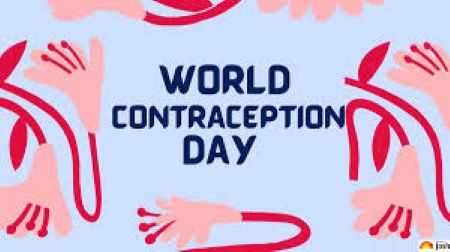On Thursday, September 26th, during World Contraception Day (WCD), health experts in Nigeria, including Professor Josiah Mutihir from Jos University Teaching Hospital (JUTH), emphasized the importance of family planning in empowering individuals to take control of their reproductive health.
At an online event organized by Development Communications Network (DevComs) with support from The Challenge Initiative (TCI, Nigeria), experts discussed Nigeria’s urgent need to manage its population growth, which has led to numerous challenges over the years.
Despite global efforts to increase awareness, Nigeria still struggles to provide adequate access to family planning services, making it difficult for individuals to manage their reproductive choices effectively.
Family Planning and Contraception
Family planning involves the use of modern contraceptives or natural methods to limit or space out pregnancies. Modern options include birth control pills, male and female sterilization, IUDs, injections, implants, condoms, and emergency contraception, while traditional methods involve periodic abstinence and withdrawal.
Choosing the right method depends on several factors, including a person’s health, age, sexual activity, family planning goals, and medical history. Access to a preferred contraceptive method supports key human rights, such as the right to life, freedom of choice, and access to education and work. It also improves overall health outcomes, especially for women and teenage girls.
Using contraception helps protect women from pregnancy-related health risks and reduces the chances of infant mortality. For instance, babies born less than two years after their siblings have a 60% higher risk of dying in infancy. Health experts like Prof. Mutihir stress that making contraception more accessible will help lower maternal deaths and allow young Nigerians to make informed choices about their futures.
Barriers to Contraceptive Access in Nigeria
While over 90% of men and women in Nigeria are aware of contraception, only 17% actually use it. Nigeria’s unmet need for contraception remains high at 24.8%, indicating that many people know about family planning but are unable to access it.
Several factors contribute to this low rate of contraceptive use, including:
- Inadequate government funding for reproductive health services.
- Stock shortages and limited availability of contraceptive options.
- Lack of trained healthcare workers and biases in service delivery.
- Cultural, religious, and political resistance to promoting contraception.
- Persistent myths and misconceptions about contraception and its effects on fertility.
Cultural leaders, religious beliefs, poverty, and spousal disagreements also play significant roles in discouraging the use of contraceptives. Prof. Mutihir emphasized the importance of addressing these challenges and called for collaborative efforts to expand access to contraception in Nigeria.
The Path Forward
This year’s World Contraception Day theme, “The Power of Options: Empowering Choice, Enhancing Health,” highlights the importance of providing a variety of contraceptive options to meet diverse needs. Access to reproductive health services is particularly limited in rural and underserved areas of Nigeria, where logistical, financial, and cultural barriers often prevent people from obtaining the care they need.
To improve access to contraception and family planning services, Prof. Mutihir and other experts outlined several areas of focus:
- Government Action: Increased funding at national, state, and local levels is crucial to ensuring that contraceptives are available and healthcare workers are properly trained.
- Community Leaders’ Role: Religious, ethnic, and community leaders must advocate for family planning and educate their communities on the benefits of contraception.
- Continued Advocacy: The media, NGOs, and professional groups should continue pushing for policies that expand access to contraception and challenge harmful societal norms.
- Private Sector Involvement: Businesses should collaborate to make affordable contraceptives more accessible, particularly in areas with limited resources.
Education and Collaboration
Lovina Victor Ibiok, a Health Promotion Officer from Akwa Ibom, stressed the importance of educating religious leaders to dispel misconceptions about family planning. She explained that many believers view contraceptives as immoral, but with proper education, religious leaders can guide their followers to make informed decisions.
Mrs. Patricia Osazuwa, Director of Nursing Services in Edo State, highlighted the need for comprehensive reproductive health education to empower young people. Meanwhile, Isaac Adamu from Plateau emphasized the importance of involving men in reproductive health decisions, suggesting that Family Planning Champions could help guide communities in making informed choices.
As Nigeria celebrates World Contraception Day 2024, the campaign reinforces a vision where every pregnancy is planned and wanted. By promoting informed decision-making and expanding contraceptive access, Nigeria can move towards a future where reproductive choices are empowered, improving health outcomes and personal development across the nation.


